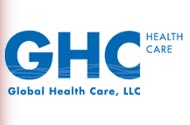OVERVIEW
In February 2007 the American Academy of Family Physicians (AAFP), the American Academy of Pediatrics (AAP), the American College of Physicians (ACP), and the American Osteopathic Association (AOA) published their landmark Joint Principles on the Patient-Centered Medical Home (PCMH). This approach promises comprehensive primary care for children, youth, and adults in a partnership between individual patients and a team of health care professionals at the practice level. The team coordinates care across all elements of the health care system. Increased quality, patient safety, use of technology, performance incentives, accountability, and patient-centeredness are all hallmarks of the medical home model.
By 2010 the medical home model had become one of the most talked-about concepts in health care and the rising star of health care reform and its newest concept, the Accountable Care Organization or ACO. The model was also evolving, with different iterations in the make-up of the medical home team, the way in which care coordination is managed, and the relationship with other members of the "medical neighborhood" -- behavioral health, oral health, social services, and specialty and inpatient care. Even the name was evolving, with "health homes" and "advanced primary care" now used to describe some patient-centered medical home models.
The Sixth National Medical Home Summit, co-hosted by the Patient-Centered Primary Care Collaborative (PCPCC), will bring together the leading authorities and practitioners in the medical home field to discuss how it is working, where it has proven outcomes, what lessons have been learned, where it needs improvement, and what issues and challenges lie ahead. Two preconferences will highlight various recognition/accreditations programs and lessons from mature medical homes, respectively, followed by a joint plenary session with the National Population Health Colloquium. Medical Home plenary sessions will feature the 20-year accomplishments of the Primary Care Development Corporation (PCDC), the patient voice, current research, the new PCPCC report on the medical neighborhood, employer and union support of the PCMH, State initiatives, oral health, and more. Three afternoon mini summits provide an in-depth look at workforce, medical neighborhood, and health plan support issues and a training program. The training program allows for a deeper dive into the subject matter and includes preconference readings, an online course, and an online exam as well as required participation in one of the preconferences and the main Summit. Candidates earn a certificate of completion with a score of 70% or better on the exam.

